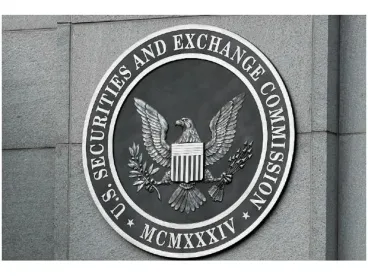On Feb. 7, 2023, the Division of Examinations of the Securities and Exchange Commission (the “Division” of the “SEC”) published its list of examination priorities for 2023. Each year, the Division prioritizes the examination of certain practices, products and services that it believes present potentially heightened risks to investors or the integrity of U.S. capital markets.
In 2023, the Division will continue to focus on various topics addressed in recent years that impact private funds and their sponsors, including valuations in closed-ended funds, electronic communications, conflicts of interest, fee and expense calculations, environmental, social and governance (“ESG”) investing, retail investors, informational security and operational resiliency and crypto-assets.
Summary of the Division’s Four Notable New Examination Priorities for 2023
The Division’s four “Notable New and Significant Focus Areas” for 2023 are:
-
Compliance with recently adopted rules under the Investment Advisers Act of 1940 (“Advisers Act”) and the Investment Company Act of 1940 (the “Investment Company Act”)
-
Registered investment advisers (“RIAs”) to private funds
-
Standards of conduct, including Regulation Best Interest, fiduciary duties and Form CRS
-
ESG investing
We have set forth below some specific considerations under each of these focus areas relating to private funds and their sponsors.
Compliance With Recently Adopted Rules
The Division will focus examinations on compliance with recently adopted rules under both the Advisers Act and the Investment Company Act, most notably the new Rule 206(4)-1 (the “Marketing Rule”), which had a compliance effective date of Nov. 4, 2022. The SEC also released an FAQ related to the Marketing Rule on Jan. 11, 2023.
The Division will evaluate whether RIAs have adopted and implemented written policies and procedures that are reasonably designed to prevent violations of the Marketing Rule, as well as whether RIAs have complied with the Marketing Rule’s substantive requirements (including with respect to performance advertising, testimonials, endorsements and third-party ratings). The FAQ includes guidance on position-level gross and net performance, and the Division will likely focus on this information and the corresponding disclosure relating to the calculation methodologies.
Advisers to Private Funds
For 2023, the Division will continue to focus on RIAs to private funds, referencing the trillions of dollars of, and rapid recent growth in, gross assets managed by such RIAs. It will give specific attention to an RIA’s: 1) conflicts of interest, particularly whether disclosures include all material facts such that the disclosures are sufficient for an investor to provide informed consent, 2) calculation and allocation of fees and expenses, including the calculation of post-commitment period management fees and the impact of valuation practices at private equity funds, 3) compliance with the new Marketing Rule, specifically performance advertising and compensated testimonials and endorsements, including by placement agents and other solicitors, 4) policies regarding selection, use and oversight of third-party service providers, including, in particular, the policies and procedures relating to the use of alternative data and compliance with the Advisers Act Section 204(A), and 5) compliance with the Advisers Act Rule 206(4)-(2) (the “Custody Rule”), including timely delivery of audited financials and selection of permissible auditors.
The Division also noted that it will focus on RIAs to private funds with specific risk characteristics such as: 1) highly leveraged private funds, 2) private funds managed side-by-side with business development companies (“BDCs”), 3) private equity funds that use affiliated companies and advisory personnel to provide services to their fund clients and underlying portfolio companies, 4) private funds that hold certain “hard-to-value” investments, such as crypto assets and real estate-connected investments, with an emphasis on commercial real estate, 5) private funds that invest in or sponsor special purpose acquisition companies, and 6.) private funds involved in adviser-led restructurings, including stapled secondary transactions and continuation funds.
Standards of Conduct; Form CRS
The Division will continue to prioritize examinations of broker-dealers and dually registered RIAs for compliance with the applicable standard of conduct, marking a continuation of the examination priorities from 2021 and 2022. Such examinations will continue to focus on: 1) investment advice and recommendations with regard to products (e.g., derivatives, leveraged ETFs, other exchange-traded products, high cost and illiquid products and proprietary products), investment strategies and account types, 2) disclosures made to investors and whether such disclosures include all material facts relating to the conflicts of interest associated with the advice and recommendations, 3) processes for making best interest evaluations, including those for reviewing reasonably available alternatives, evaluating costs and risks and identifying and addressing conflicts of interest, and 4) factors considered in light of the investor’s investment profile, including investment goals and account characteristics (e.g., if a client has retired or experienced a change in marital status, it could trigger an obligation to make a new inquiry).
With respect to RIAs specifically, examiners will review whether an RIA’s conflicts of interest disclosure is adequate for a client to provide its informed consent to the relevant conflict, whether express or implied. The Division also intends to review whether firms have customer or client agreements that purport to inappropriately waive or otherwise limit the applicable standard of care (for example, through the use of hedge clauses).
The Division expects to continue to prioritize compliance with Form CRS, including the obligation to deliver these relationship summaries to new and prospective retail investors (in addition to existing retail investors), file the relationship summaries with the SEC and, if the firm has a public website, post the current relationship summary on the site.
ESG Investing
As investors increasingly demand ESG-related investments, in 2023 the Division will continue to focus on ESG-related advisory services and fund offerings, including whether the funds are operating in the manner set forth in their disclosures. The Division will also assess whether ESG products are appropriately labeled and whether recommendations of such products for retail investors are made in investors’ best interest.
Certain Ongoing Examination Priorities
Investment Advisers: Examinations of RIAs
The Division also will continue to evaluate whether the various aspects of RIAs’ operations and compliance practices have appropriately adopted and considered current market factors, such as those that might impact valuation and the accuracy of RIA regulatory filings. The performance of the overall markets and global economy will play a role in the SEC’s focus in these areas. In addition to reviewing certain historical core focus areas, the Division expects to focus on RIA policies and procedures for retaining and monitoring electronic communications (notably, the SEC reported a historic number of $1.1 billion for electronic communications monitoring failures in 2022) and selecting and using third-party service providers, for which they have recently proposed a new rule setting forth specific standards applicable to such engagement and monitoring.
Informational Security and Operational Resiliency
The Division’s report highlights the elevated cybersecurity risk environment in light of certain larger market events, geopolitical concerns and a rising number of cybersecurity attacks. As a result, the Division will continue to review broker-dealers’ and RIAs’ practices to prevent interruptions to critical services and to protect investor information, records and assets.
Examinations of broker-dealers and RIAs will continue to look at firms’ policies and procedures (such as whether such policies and procedures are reasonably designed to safeguard customer records and information), governance practices and responses to cyber-related incidents. The Division also expects examinations to evaluate firms’ efforts to prevent account intrusions and safeguard customer records and information, including personally identifiable information. Cybersecurity issues associated with the use of third-party vendors will be an additional area of focus.
Examinations will continue to assess systemically significant operational resiliency planning (e.g., registrants’ efforts to consider and/or address climate-related risks).
Crypto Assets and Emerging Financial Technology
In light of disruptions caused by recent financial distress among crypto market participants, the Division has said it will conduct examinations that focus on the offer, sale, recommendation of or advice and trading in crypto or crypto-related assets. The Division will assess whether such market participants involved with crypto or crypto-related assets: 1) met and followed their respective standards of care when making recommendations, referrals or providing investment advice, to the extent required, and 2) routinely reviewed, updated and enhanced their compliance, disclosure and risk management practices. In addition, the Division will focus on new or never-before-examined registrants offering crypto or crypto-related assets.
The Division also will focus broker-dealer and RIA examinations on firms with “digital engagement practices” (meaning tools with behavioral prompts, differential marketing, game-like features and other design elements or features designed to engage with retail investors on digital platforms, as well as the analytical and technological tools and methods), including whether: 1) recommendations were made or advice was provided (e.g., through the use of social media marketing and social trading platforms), 2) representations are fair and accurate, 3) operations and controls in place are consistent with disclosures made to investors, 4) any advice or recommendations are in the best interest of the investor taking into account the investor’s financial situation and investment objectives, and 5) risks associated with such practices are considered, including the impact these practices may have on particular investors.






 />i
/>i
